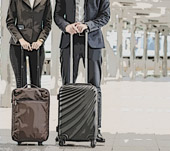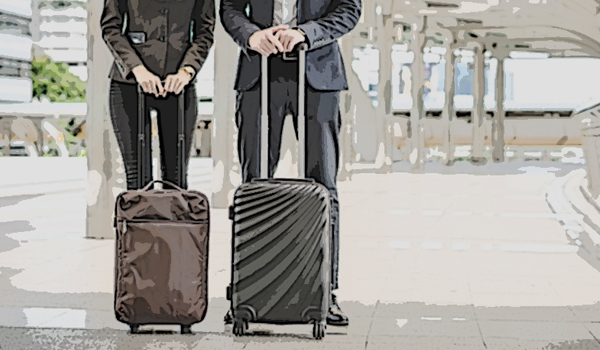 Travel is part of a working life.
Travel is part of a working life.
A subsistence allowance is an allowance given to an employee in respect of incidental costs incurred when away from home for at least one night (sunset to sunrise) on company business.
In ITC1668 (1998) 61 SATC 444 (G), the court held that where an employee chose a place of employment away from his home, he was not obliged to spend time away from home by reason of his duties. The court also held that the employee, by being away from home for such a long time, had established a new ‘usual place of residence in the Republic’ and so the subsistence allowance could not apply. It is submitted that this cannot be taken as a general principle and one would have to consider the specific facts of the case.
A fact is that a subsistence allowance that is paid at the correct rates is tax-free. However, the following is important to note:
- You may claim an amount equal to the prescribed SARS rate per day that you are away from home on local travel (in South Africa) or on overseas travel.
- There are different prescribed rates for overseas travel. Each country has its own rate.
Refer to SARS Website:
http://www.sars.gov.za/Tax-Rates/Employers/Pages/Subsistence-Allowances-and-Advances.aspx - The prescribed SARS rate per day is intended to cover only meals and/or incidental costs.
The allowance for incidental costs is to cover beverages, private telephone calls, gratuities (tips) and room services. - The power given to the Commissioner to set a tax-free rate is only in respect of meals and incidental costs. It does not extend to the accommodation itself. If the employee is given a subsistence allowance to cover the cost of accommodation, the employee must prove that he has spent the allowance on the accommodation and the amount spent by him may be deducted from the subsistence allowance.
- The subsistence allowance may never be taken as a salary sacrifice. It must be paid out additional to the salary. It does not form part of the basic salary.
GUIDE FOR EMPLOYERS IN RESPECT OF ALLOWANCES (2019 TAX YEAR) states
“A subsistence allowance is intended for abnormal circumstances and therefore an allowance of this nature cannot form part of the remuneration package of an employee. It is an amount paid by an employer to the employee IN ADDITION to the employee’s normal remuneration.”
http://www.sars.gov.za/AllDocs/OpsDocs/Guides/PAYE-GEN-01-G03%20-%20Guide%20for%20Employers%20in%20respect%20of%20Allowances%20-%20External%20Guide.pdf
- Subsistence allowance must be shown on the employees’ IRP 5 certificate.
The following is important to note regarding the IRP5 certificates:- The subsistence allowance must be reflected in full on the certificate.
- IRP5 codes:
- Code 3704 (for local travel) and/or code 3715 (for foreign travel) in cases where the prescribed SARS amounts and/or periods are exceeded.
- Code 3705 (for local travel) and/or code 3716 (for foreign travel) in cases where the prescribed SARS amounts and periods are not exceeded. “
- Employees’ tax is not deducted from the subsistence allowance, whether or not the deemed amounts or periods are exceeded.
Should the employee not wish to use the daily subsistence rates mentioned above, then the employee must submit proof of the actual costs incurred to the employer. The employer may then reimburse the employee for such costs incurred.
To conclude, a subsistence allowance is intended for abnormal circumstances and therefore an allowance of this nature cannot form part of the remuneration package of an employee. It is an amount paid by an employer to the employee IN ADDITION to the employee’s normal remuneration.
If you have any enquiries, please contact Adri Britz at abritz@fhbc.co.za
Source Reference:
Notes on South African Income Tax – Phillip Haupt
https://www.hrworks.co.za/articles/89-subsistence-allowance
http://www.paymaster.co.za/pay-employee-travels-away-home/

